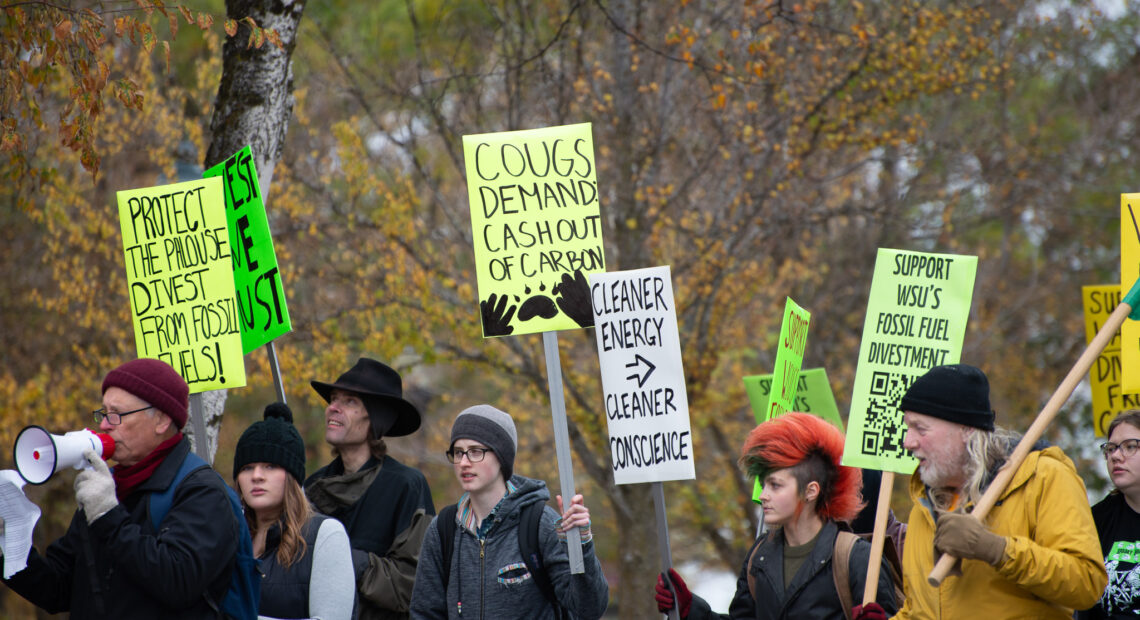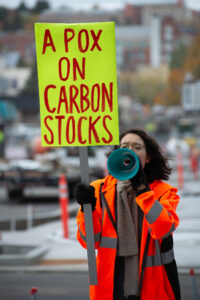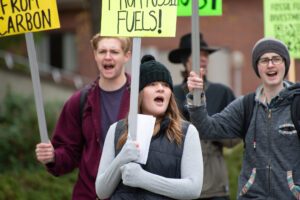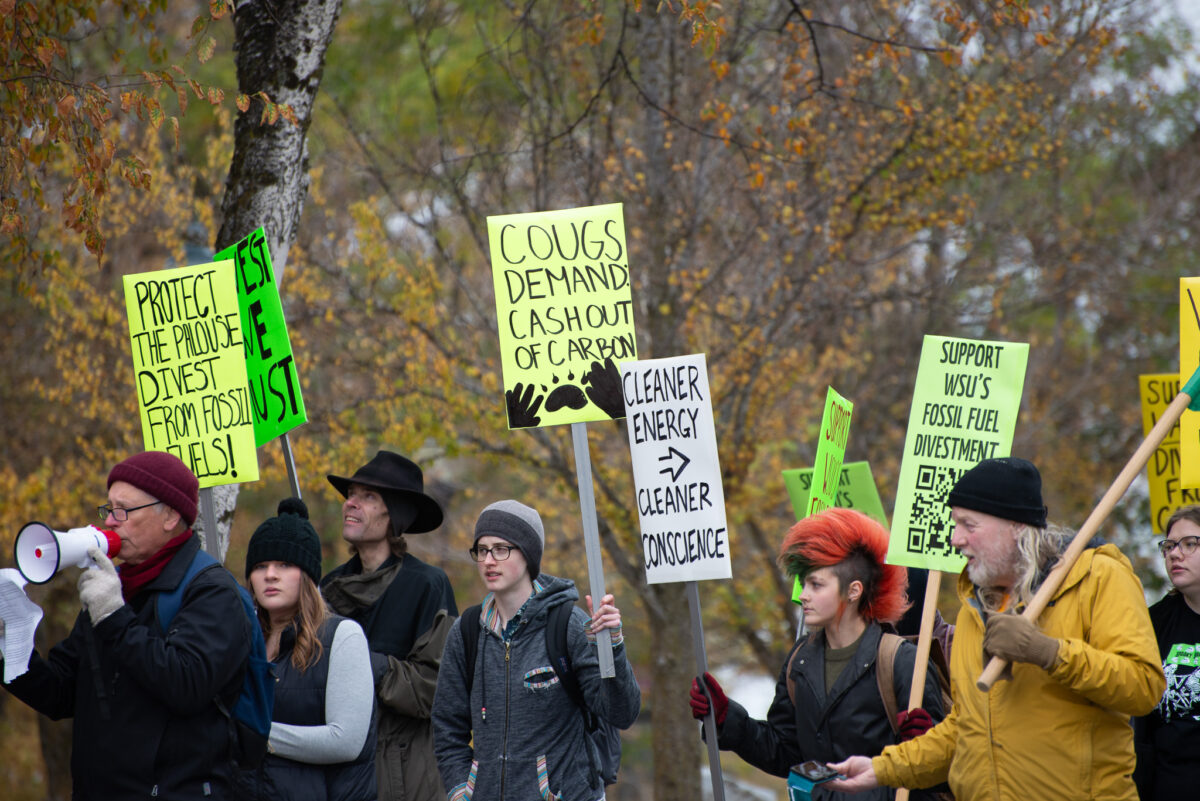
Environmental group calls for fossil fuel divestment at WSU
Listen
(Runtime 1:02)
Read
Students at Washington State University held a protest Wednesday to call for the university to financially divest from fossil fuel companies.
“We have worked and tried raising our voices to have the university hear us through public comments to (WSU) President Schulz himself. And yet we have not been heard,” said Alyx Herring, the chairperson of WSU’s Environmental Sustainability Alliance.
Members of the ESA and its subcommittee, Fossil Free WSU, said they have been pushing for fossil fuel divestment for roughly four years, to no avail. As early as 2014, WSU hosted speakers to discuss fossil fuel divestment campaigns.
Some of WSU’s Board of Regents have been sympathetic to calls for divestment, said Bill Engels, an instructor at WSU’s Graduate Writing Center and member of Fossil Free WSU. But the WSU Foundation has yet to make the changes necessary for divestment.

Alyx Herring, a WSU sophomore and the chairperson of the Environmental Sustainability Alliance at Washington State University, speaks at a protest Wednesday afternoon. (Credit: Phineas Pope / NWPB)
“They’re not willing to change the way they manage funds, which would be required if they’re going to divest,” he said. “Currently, it’s impractical to do so. But they haven’t taken steps toward revising their method of investment management to allow for divestment.”
As of 2023, around 1,500 institutions had committed to divest from fossil fuels, according to a research article published in the University of California Press. That includes at least 250 educational institutions, according to the nonprofit Everytown.
Fossil fuel investments are thought to account for roughly 5% to 8% of the WSU Foundation’s investments, Engels said, based on his communications with WSU Foundation CEO Mike Connell in 2022.
As of June 2024, the WSU Foundation Endowment’s total asset value was more than $722 million, according to the WSU Foundation’s website.
Protesters said after years of advocating for divestment without success, they’ve changed their approach.
Letters addressed to Schulz and the WSU Foundation board of directors announced plans to file a complaint with the Washington attorney general for alleged violations of a little-known law called the Uniform Prudent Management of Institutional Funds Act.
The complaint, protesters said, will assert that WSU’s investment committee breached the Act’s provisions for prudence, loyalty and charitable purposes by continuing to invest in fossil fuels.

Lyric Lynch, a Washington State University freshman, chants at a protest advocating for WSU to financially divest from fossil fuels. (Credit: Phineas Pope / NWPB)
“We haven’t been seeing significant progress, so we decided it was time to shift our strategy from an emphasis on dialogue with the administration,” Engels said.
It follows in the footsteps of students at other universities who made a similar argument for fossil fuel divestment, including the University of Pennsylvania, the University of Chicago, Tufts University, Pomona College, Washington University in St. Louis and Pennsylvania State University.
Herring said they’ve noticed marketing by WSU that promotes other sustainability efforts, such as recycling initiatives, dining services sustainability and clean energy certifications for new buildings. But Herring said they feel like little has been done to make larger systemic changes.
“It kind of feels like a slap in the face when they are still continuing to invest in these corporations,” Herring said. “I feel where it’s more meaningful, there isn’t anything coming.”

Zee Augenstein, a Washington State University sophomore and an officer at the Environmental Sustainability Alliance, speaks at a protest Wednesday afternoon in downtown Pullman. (Credit: Phineas Pope / NWPB)
WSU sophomore and ESA officer Zee Augenstein said they’re worried about what the next few decades will look like without major changes in fossil fuel reliance. They noted a decline in CO2 absorption recorded last year, and how some climate scientists now predict that some ecosystems may collapse within the next decade.
“I still have many years left of my life, and I don’t want to be 60 and live in a boiling hot jar, basically, that we are starting to turn our planet into,” Augenstein said. “That is not good for us, that is not good for the ecosystem and that is going to affect our lives significantly.”
Two other local advocacy groups, Extinction Rebellion Palouse and Sunrise Palouse, demonstrated at the University of Idaho to advocate for the university’s trust to divest from fossil fuel on Tuesday.
Regional universities with commitments to divest from fossil fuel include Oregon State University and the University of Washington.
Last year, UW committed to divest from fossil fuels by 2027, and invest at least 2.5% of the university’s investment portfolio to climate solutions companies, according to The Seattle Times. In addition, UW committed to a net-zero emissions investment portfolio by fiscal year 2050.
















